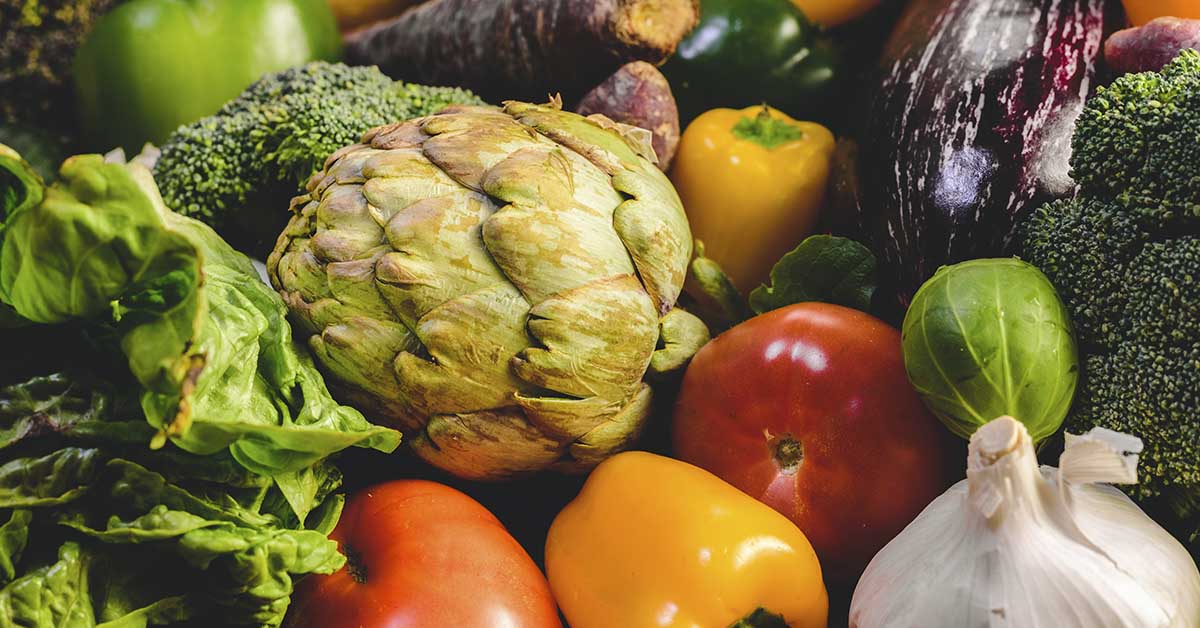Cancer is a leading cause of death all over the world, causing almost 10 million deaths in 2020. [1] Although there is no exact way to prevent cancer, research has investigated different ways to reduce one’s risk. However, there is a lot of misinformation surrounding cancer prevention and treatment, especially when it comes to nutrition. Although “anti-cancer foods” do technically exist, they are not as life-saving or tumor-busting as claimed (often by people looking to profit). [2]
As far as well-investigated research is concerned, there is no official diet or specific food that can cure or prevent cancer. However, there are ways to reduce the risk of cancer, and some of them include dietary changes. Additionally, some foods have potential “anti-cancer” properties like antioxidants and omega-3 fatty acids. Even though these foods can’t guarantee cancer prevention, they have many other benefits to contribute to overall good health. Besides, many of them are delicious.
How to Reduce Your Risk of Cancer
Keep in mind, the research surrounding cancer prevention is still evolving. But many things on the current list are overall healthy choices, so reducing the risk of cancer may become one benefit among many. For instance, it’s recommended to avoid tobacco because of the correlations between smoking and lung cancer, as well as chewing tobacco to pancreatic cancer. It’s also recommended to avoid infections that could lead to cancer, like HPV and Hepatitis B, and use proper sun protection to avoid skin cancer. [3]
But perhaps a more unknown cancer prevention method is maintaining a healthy weight, staying physically active, and eating a healthy diet. An “anti-cancer diet” (which is very similar to an overall healthy diet) includes drinking alcohol in moderation and limiting processed meat and red meat. It also involves eating plenty of fruits and vegetables rich in vitamins and nutrients, and fewer processed or sugary products. [4] More specifically, it could mean increasing intake of different “anti-cancer” foods. Remember, no single food could shield from cancer, but consuming them all together in a healthy diet may lower the potential risk.
Read: Important Facts You Need to Know About Gluten (and Celiac Disease)
11 Anti-Cancer Foods Backed by Research
Green tea
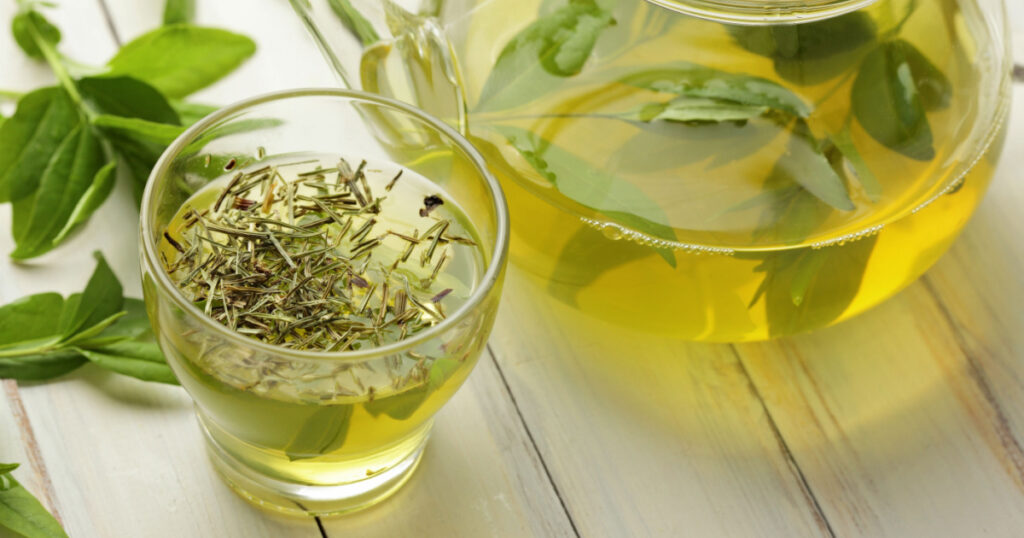
Green tea contains antioxidants, and in particular, epigallocatechin-3 gallate. Researchers have found that this compound can help fight against urokinase (an enzyme involved in cancer growth). Although it’s found in other types of tea (as well as different nuts and fruits), green tea surpasses them all, containing between 100 and 200 milligrams. Some (but not all) human studies linked drinking tea to a reduced risk of cancer.
Tomatoes
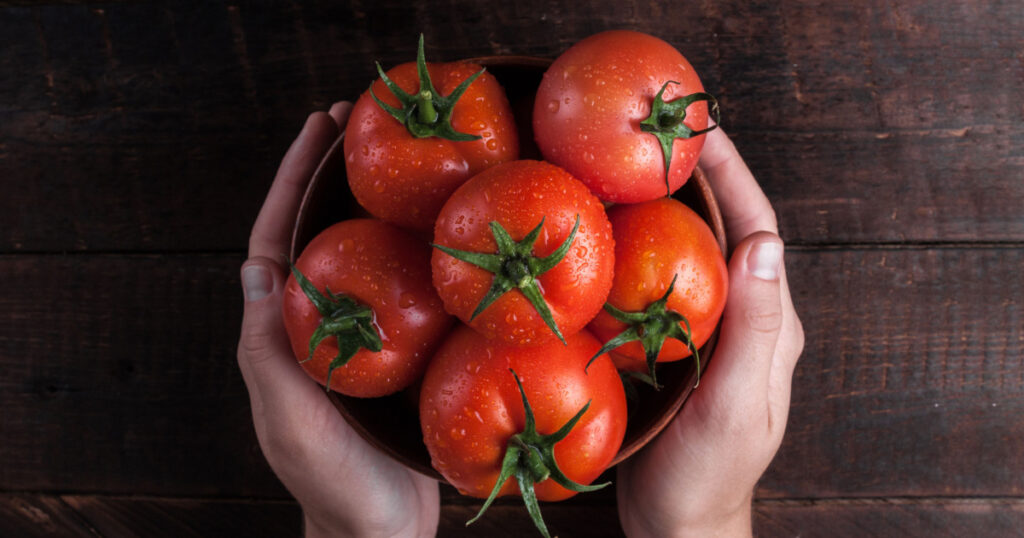
Tomatoes contain an antioxidant called lycopene, which has been associated with protecting the body from specific cancers, like lung and prostate cancer. However, it’s ideal to cook the tomatoes instead of eating them raw because the process helps release the antioxidant for better absorption in the body. So tomato sauce or soup may be preferred.
Grapes
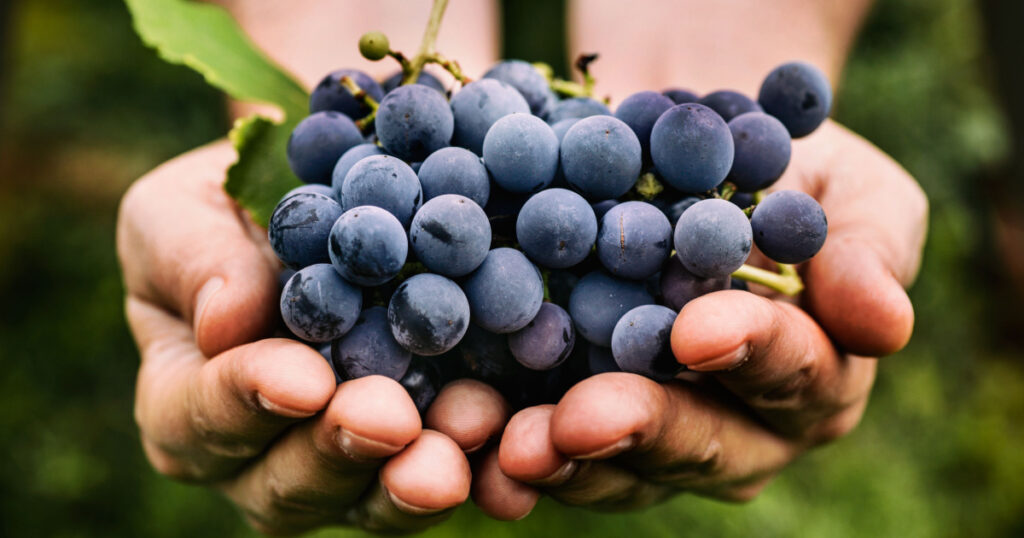
The seeds in red grapes contain the superantioxidant activin, while the skin contains the antioxidant resveratrol. These antioxidants are also present in other grape products like red wine and red grape juice. Research has found that activin may offer some protection against different types of cancer as well as heart disease. Plus, resveratrol inhibited the growth of cancer cells in some lab studies.
Garlic
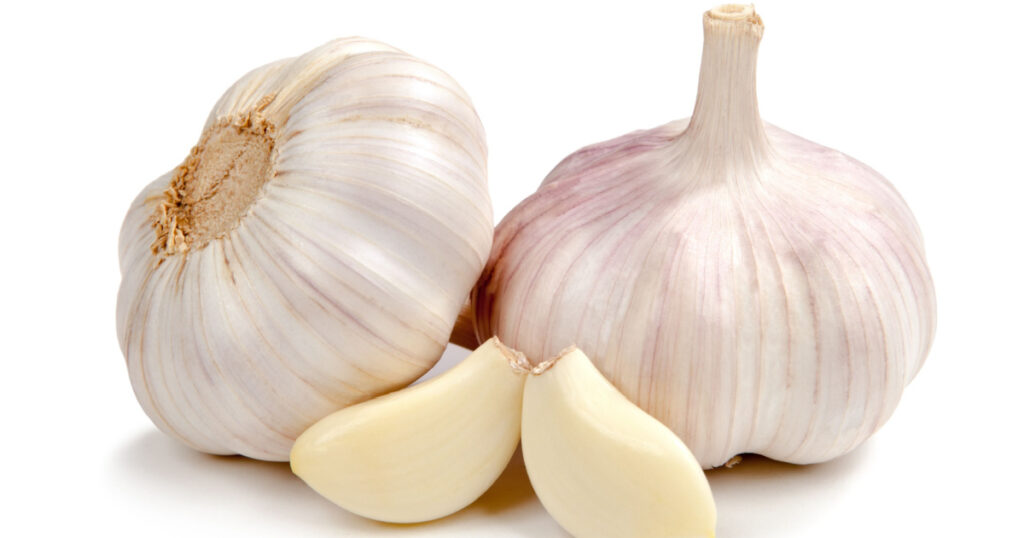
Studies discovered that garlic contains chemically active sulfur compounds that can block the formation of nitrosamines. These powerful carcinogens tend to target different areas of the body, namely the breast, liver, and colon. Plus, the more pungent the garlic, the more the nitrosamines-fighting compounds. They can particularly help reduce the risk of developing cancer in the digestive organs like the colon, stomach, or esophagus.
Fish
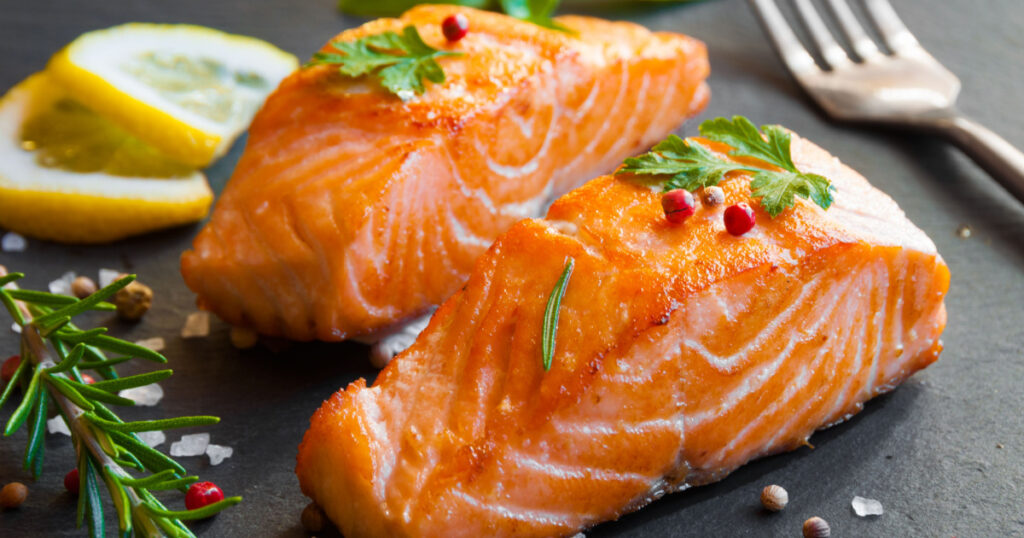
Fatty fish like salmon, herring, and tuna have omega-3 fatty acids, which has been linked to a lowered risk of prostate cancer. But if you don’t eat fish, you can increase your intake of omega-3s through eating flaxseed.
Berries
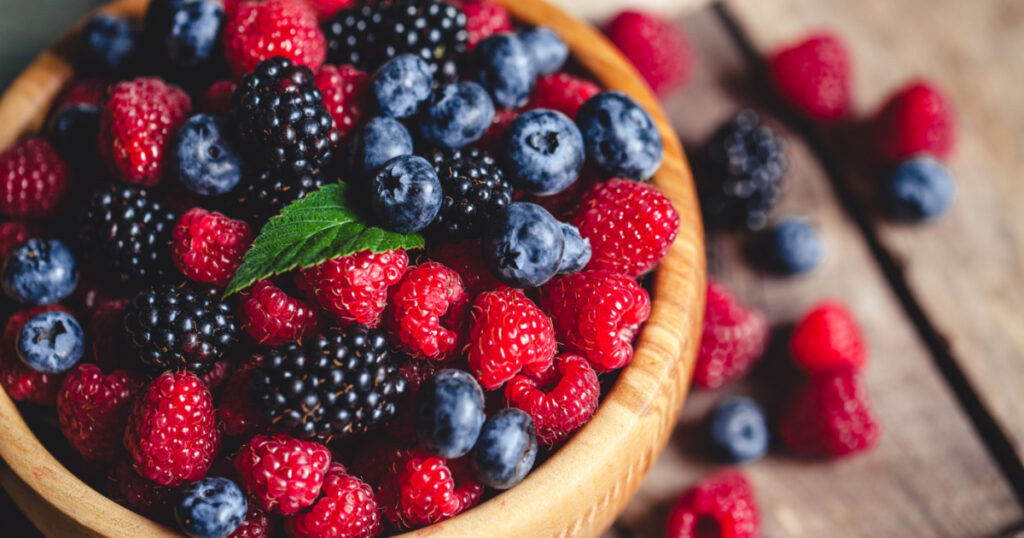
Berries are famous for containing antioxidants, which can help block free radicals that may damage cells in the body. These compounds may also help block cancer from growing or spreading to other areas. This “anti-cancer” food category extends to blueberries, strawberries, blackberries, cranberries, and raspberries. [5]
Read: 10 Alternative Flours You Should Know
Cruciferous vegetables
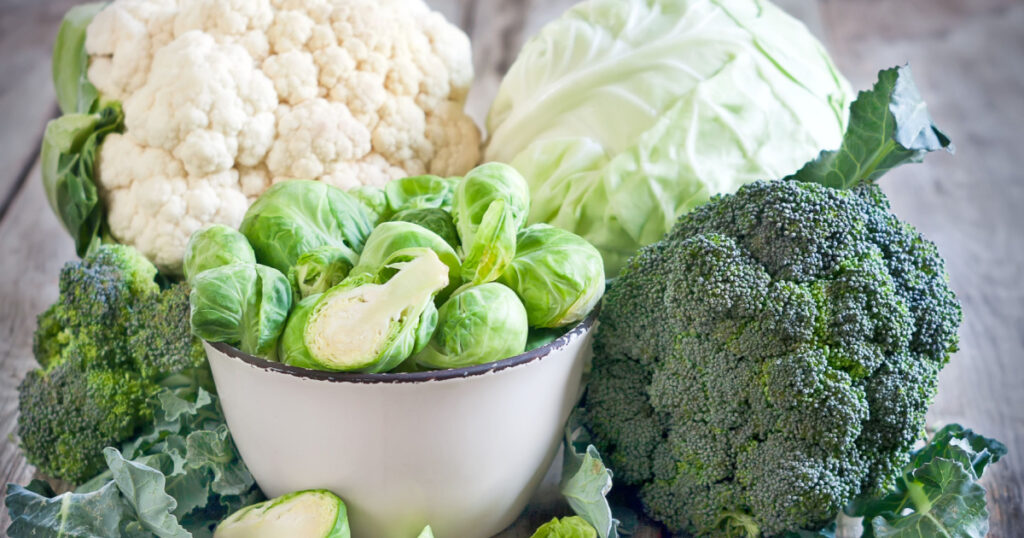
This includes cabbage, cauliflower, broccoli, etc. And they contain components that may help shield healthy DNA cells from damage from free radicals. They might also help protect the body from cancer-causing chemicals and slow down tumor growth.
Whole grains
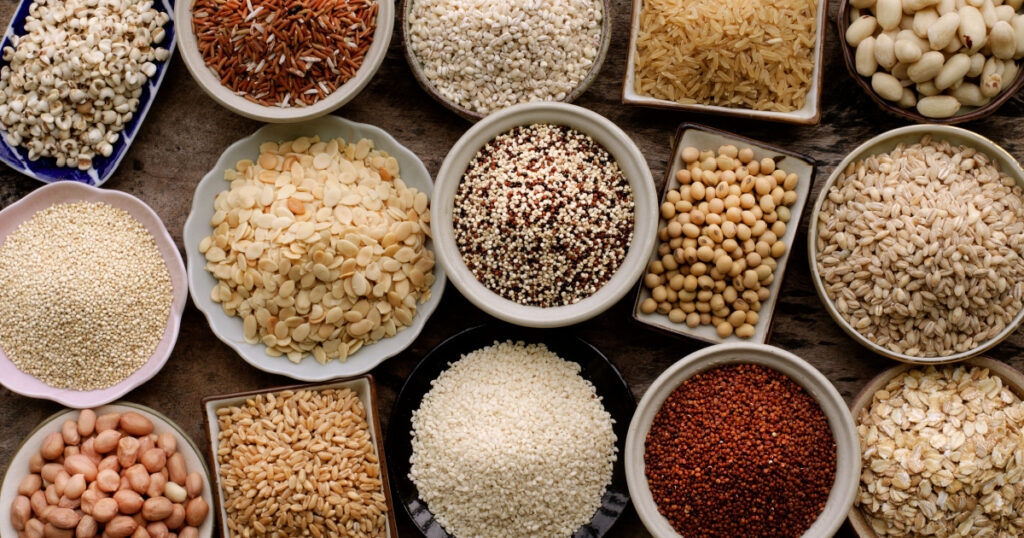
Whole grains contain fiber, antioxidants, and other components that can lower the risk of cancer, according to the American Institute for Cancer Research. In fact, one study with almost half a million participants discovered that increased intake of whole grains might help lower the risk of colorectal cancer. This places items like brown rice, barley, oatmeal, spelt, bulgar, and whole wheat high on the anti-cancer food list. [6]
Turmeric
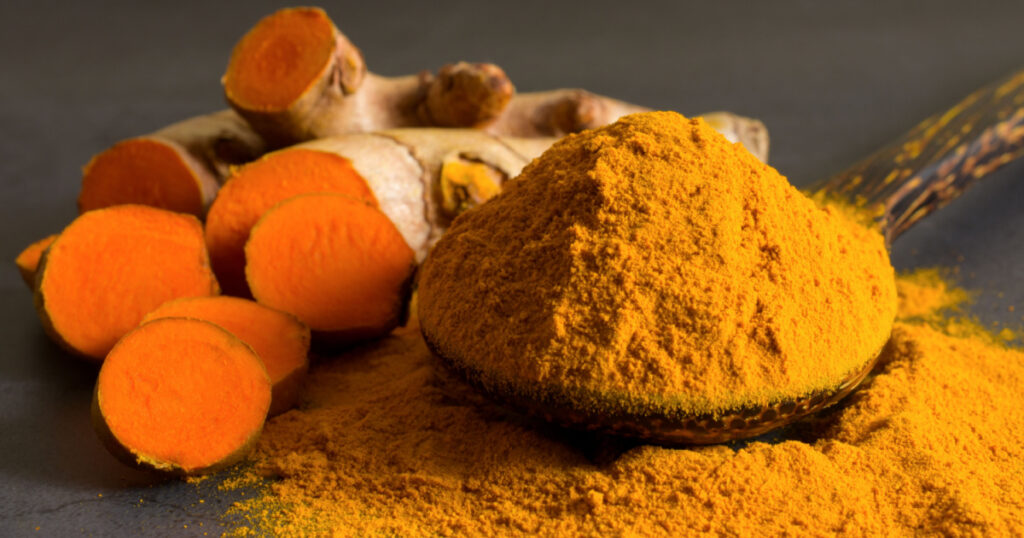
This root spice contains curcumin, which may help reduce cancer risk. In lab studies, curcumin inhibited some types of cancer cells; plus, in animal studies, it slowed the spread or shrank tumors, according to the American Cancer Society. Fortunately, turmeric in root form or ground form is easy to find in grocery stores, and its subtle earthy flavor can enhance many different recipes.
Walnuts
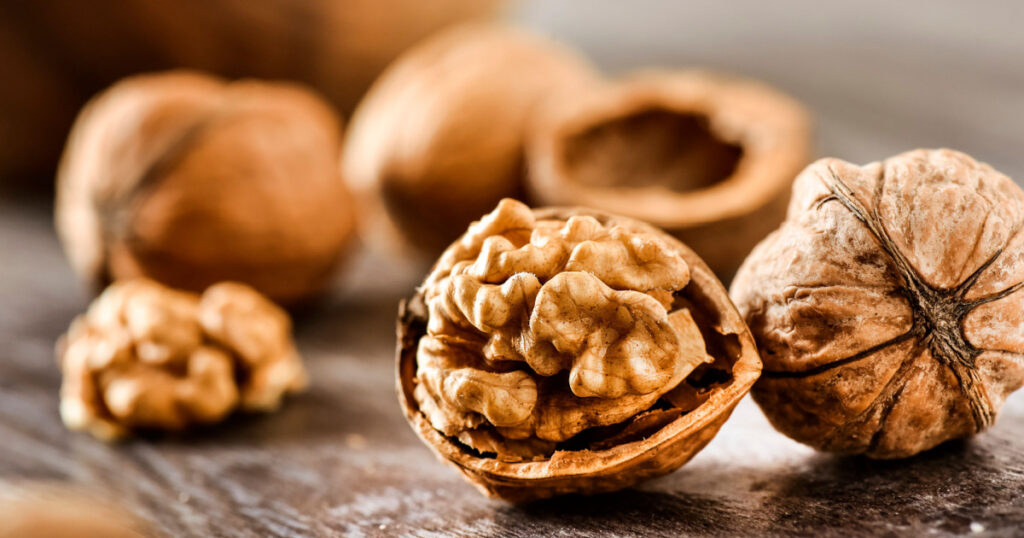
New research has found that walnuts may help protect against cancer. Its compounds include ellagitannins, melatonin, and gamma-tocopherol, and they each help reduce oxidative stress, inflammation, and gene expression that can lead to cancer in the body. Although this research is still preliminary, walnuts can be easily added to a healthy diet, through pesto, salads, yogurts, and as snacks by themselves. [7]
Coffee
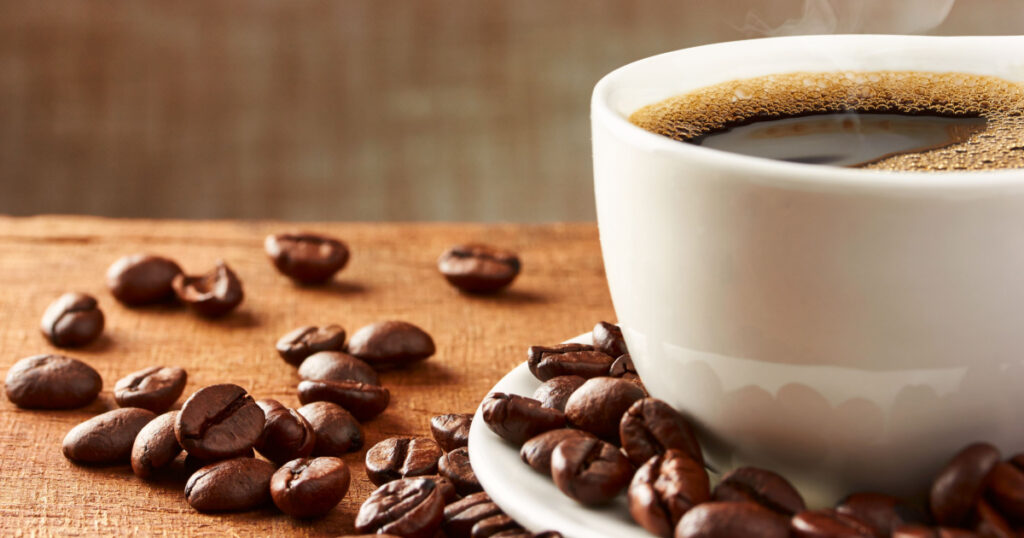
Coffee has been touted as an anti-cancer food — and a cancer risk. However, the “risky” compound called acrylamide found in roasted coffee beans has no established link with cancer in people. In animal studies that tout the risk, the subjects were given doses of acrylamide significantly higher than the amount people consume from coffee. Meanwhile, coffee has protective antioxidants that might reduce the risk of liver and endometrial cancer. Even decaf coffee contains these antioxidants. [8]
Keep Reading: The Top 10 Medicinal Plants and Herbs for Your Health
Sources
- “Cancer.” WHO. February 3, 2022
- “The Online Cancer Nutrition Misinformation: A framework of behavior change based on exposure to cancer nutrition misinformation.” Cancer. Echo L. Warner. July 1, 2022
- “The 10 commandments of cancer prevention.” Harvard Health Publishing. October 1, 2019
- “Diet, nutrition, and cancer risk: what do we know and what is the way forward?” The BMJ. Timothy J. Key. March 5, 2020
- “The Anti-Cancer Diet: Foods That Prevent Cancer.” Everyday Health. Eric Metcalf, MPH. January 5, 2018
- “The Nutrition Source: Preventing Cancer.” Harvard T.H. Chan.
- “Walnuts: Support a Cancer-Preventive Diet.” American Institute for Cancer Research. January 2, 2020
- “Coffee: Lowers Risk of Liver and Endometrial Cancers.” American Institute for Cancer Research. April 4, 2021
Disclaimer: This information is not intended to be a substitute for professional medical advice, diagnosis or treatment and is for information only. Always seek the advice of your physician or another qualified health provider with any questions about your medical condition and/or current medication. Do not disregard professional medical advice or delay seeking advice or treatment because of something you have read here.
